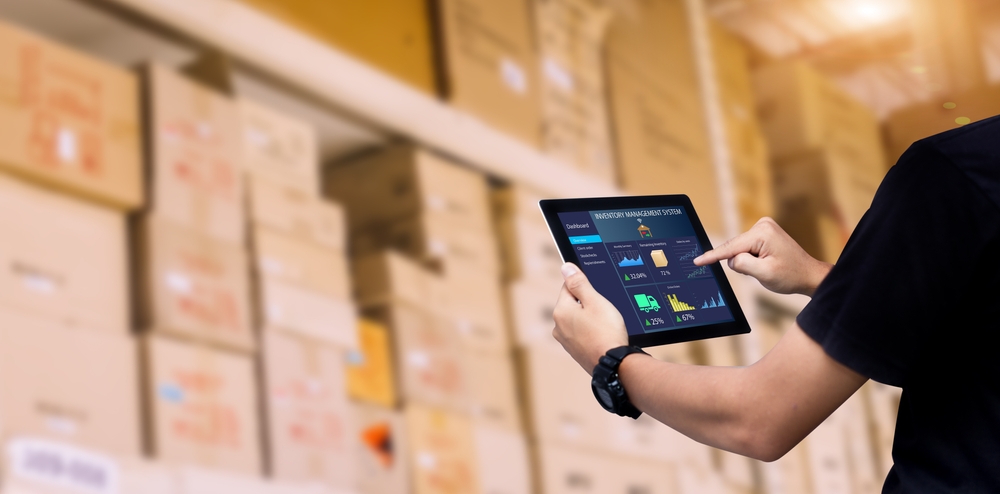The intricate network that delivers goods from raw materials to consumers — the supply chain — is undergoing a dramatic transformation fueled by the rise of artificial intelligence (AI). This shift holds the potential to enhance efficiency, flexibility, and transparency at every step of the journey.
AI promises smoother operations and clearer visibility from start to finish. But this AI transformation isn’t just about technology —it’s about people too. The workforce is on the cusp of a major shift. By 2028, Gartner, a leading research firm, predicts smart robots will outnumber human workers in manufacturing, retail, and logistics sectors. But these AI-powered robots are designed to excel at repetitive tasks. This frees human workers to focus on strategic planning, innovation, and customer interaction. It’s a shift, not a threat, with the potential to unlock greater human potential in the supply chain.
Traditional Supply Chain Struggles: Bottlenecks, Delays, and Frustration
Before diving into the exciting world of AI, let’s take a moment to understand some of the common hurdles traditional supply chains face:
- Demand forecasting: Predicting consumer behavior with accuracy has always been a struggle. Traditional methods often rely on historical data, which may not account for sudden shifts in trends or unforeseen events.
- Inventory management: Striking a delicate balance between too much and too little inventory is a constant battle. Excess inventory ties up capital and risks obsolescence, while insufficient stock leads to stockouts and frustrated customers.
- Visibility and traceability: Tracking goods throughout the supply chain can be complex, making it difficult to identify bottlenecks and pinpoint potential issues.
Harnessing AI for Supply Chain Optimization
Artificial intelligence is transforming supply chains by providing businesses with powerful tools to tackle common challenges. AI algorithms can analyze vast amounts of data to predict demand with up to 20 to 50 percent more accuracy, leading to optimized production, inventory management, and marketing. AI can also optimize inventory levels, minimize stockouts, and suggest adjustments based on potential disruptions.
By analyzing historical sales data, real-time demand fluctuations, and lead times to optimize inventory levels, AI can help businesses minimize stockouts while reducing the risk of holding excess inventory. AI can also predict potential disruptions — like port closures or weather events — and suggest adjustments to inventory management strategies.
In transportation, AI helps plan efficient routes, reducing costs and environmental impact, while advancements like self-driving vehicles promise further revolution. AI already helps plan efficient routes, considering traffic patterns, weather conditions, and fuel costs. This reduces transportation times and costs while also minimizing the environmental impact. Finally, AI-powered platforms with blockchain technology provide real-time tracking and increased transparency throughout the supply chain, allowing for issues to be resolved swiftly.
The future of supply chains is undeniably AI-powered. This technology offers a powerful toolkit to overcome longstanding challenges and unlock a new era of efficiency, flexibility, and transparency. Supply chain managers are becoming wizards at knowing exactly what will fly off the shelves, thanks, in part to AI. Artificial intelligence empowers businesses to streamline operations and deliver superior customer value.
However, the human element remains paramount. While AI tackles mundane, repetitive tasks, human ingenuity and expertise will be crucial for strategic planning, innovation, and fostering strong customer relationships. This shift presents a unique opportunity to leverage the strengths of both humans and artificial intelligence, ultimately creating a more resilient, responsive, and sustainable supply chain ecosystem.
Manufacturers navigating supply chain disruptions due to the rise of artificial intelligence (AI) can enhance their logistics operations by opting for iGPS plastic pallets. These pallets are engineered to seamlessly integrate with automated systems, ensuring a smooth flow in an increasingly AI-focused supply chain. For more information, contact us at 1-800-884-0225, email a specialist at switch@igps.net, or visit our contact page.



